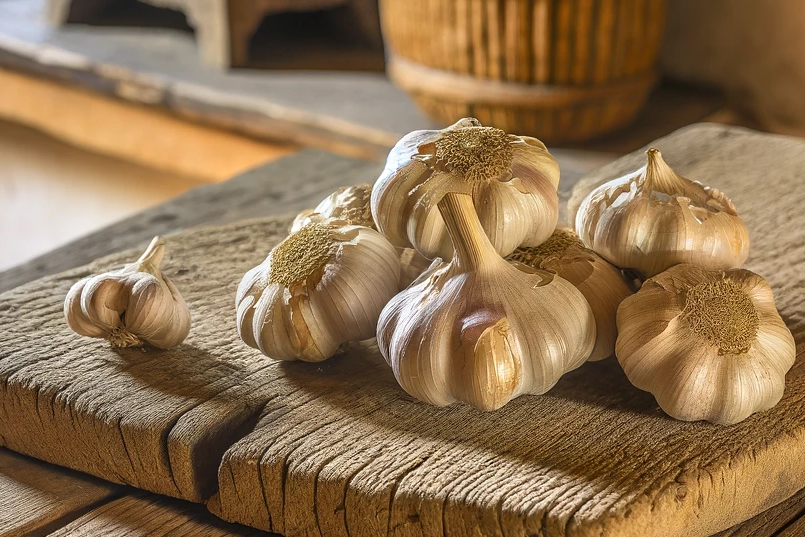Allyl methyl trisulfide

What is allyl methyl trisulphide?
Allyl methyl trisulphide belongs to the group of organic sulphur compounds and is mainly found in garlic and onions. It is responsible for some of the characteristic smells and tastes of these kitchen ingredients. But it is not just a simple flavor carrier. The substance has interesting properties that can have both positive and negative effects on health.
The benefits: A protective shield for your health?
Immune system booster
Allyl methyl trisulphide has antioxidant properties that can help to strengthen the immune system. It supports the body's defenses and helps it to defend itself against various diseases.
Heart health
Studies in humans have shown that allyl methyl trisulfide has potentially positive effects on the cardiovascular system. It could help regulate blood pressure and keep arteries healthy.
Cancer-preventive effect
Research suggests that allyl methyl trisulfide may play a role in cancer prevention by inhibiting the formation of cancer cells. Although these studies have not been conducted specifically in dogs, it is conceivable that similar effects may exist.
The cons: A risk to canine health
Toxic effects
Allyl methyl trisulfide is toxic to dogs in large quantities. It can lead to destruction of red blood cells, resulting in anemia. Symptoms of poisoning include lethargy, weakness, decreased appetite and sometimes dark urine.
Gastrointestinal irritation
Ingestion of allyl methyl trisulfide can cause gastrointestinal upset in dogs, including vomiting and diarrhea. These reactions are particularly common when large amounts of garlic or onions are ingested.
Long-term effects
Regular ingestion of allyl methyl trisulfide in high concentrations could result in long-term health effects. These include persistent digestive problems and potentially serious illnesses such as liver or kidney damage.
Allyl methyl trisulfide is an example of how complex the effects of certain dietary ingredients can be on health. While there are potential health benefits, the risks clearly outweigh the benefits in dogs, especially because of their sensitivity to this substance. It is therefore important that dog owners exercise caution with foods containing allyl methyl trisulfide. Garlic and onions should be kept out of the dog's diet or only given in strictly controlled, minimal amounts under the supervision of a veterinarian. Your dog's health is paramount, and avoiding toxic substances is an essential part of caring for them.
Properties 5
Are you looking for other ingredients with a specific property?
Just click on them to find more.
If you notice any signs of hypersensitivity or poisoning in your dog, you should see your vet immediately. We are not a substitute for a vet, but we try to be as accurate as possible. Every dog reacts differently and we recommend you get a second opinion or consult your vet if in doubt.
Stay healthy and take good care of your four-legged friend!😊
Similar to Allyl methyl trisulfide
Diallyl disulphide is an organic sulphur compound that is mainly found in garlic and in smaller quantities in onions. It is responsible for the characteristic smell and taste of these vegetables....
Allyl sulphide is a volatile substance that is mainly found in garlic and in smaller quantities in onions. It is one of the main reasons for the distinctive smell and taste of these kitchen...
Diallyl trisulphide is a chemical compound that, like diallyl disulphide, is found in certain plants such as garlic and onions. It is an organic sulphur compound and plays a role in the...
Dipropyl disulphide belongs to the class of organic sulphur compounds and is found in nature in numerous plants and some animal products. It is known for its distinctive smell and is often used as a...



